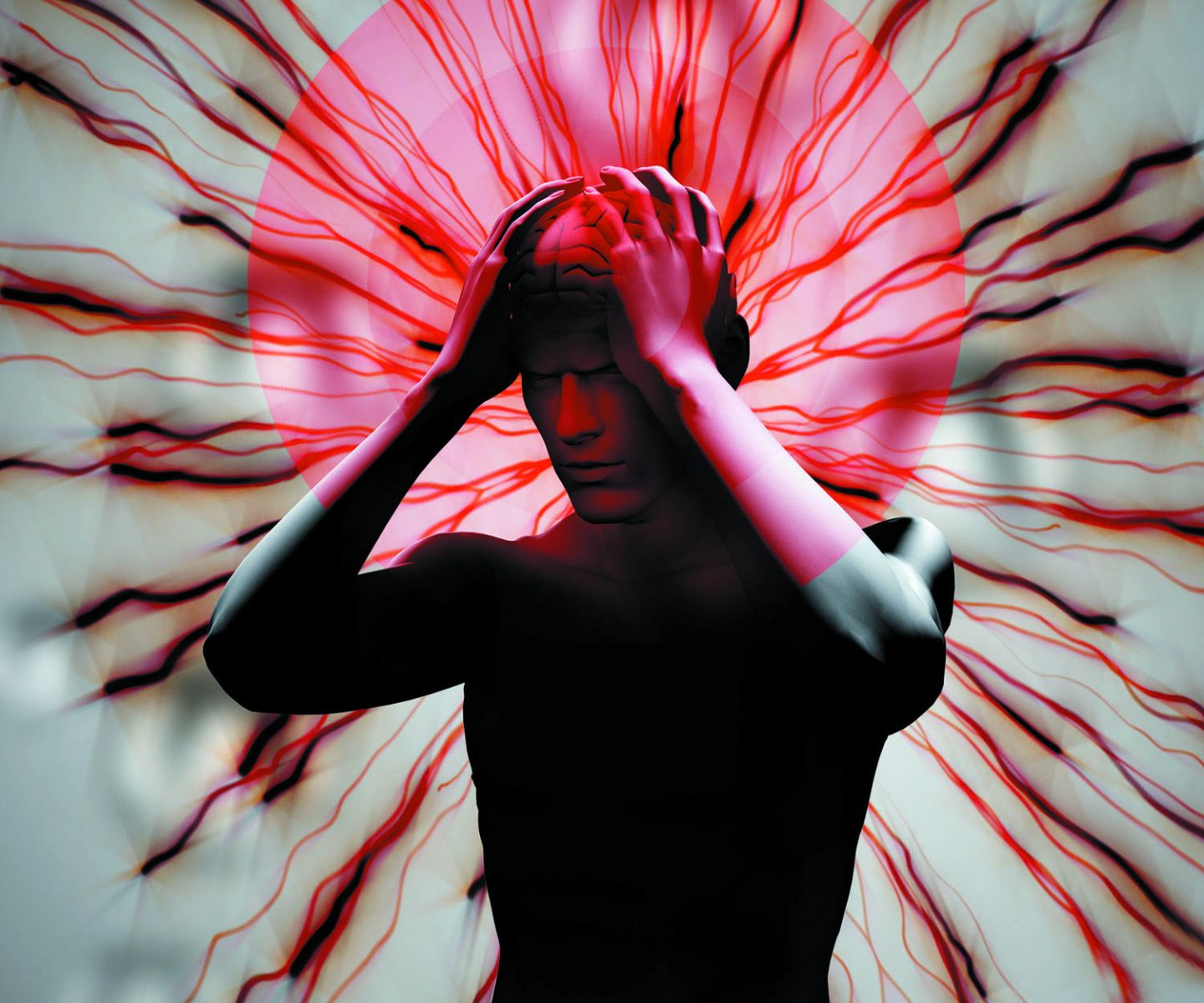
Trying to lose weight? Be careful not to lose muscle

Is your skin problem actually an autoimmune condition?

People with diabetes face higher risk of hearing loss

Antibiotic-free fixes for recurrent UTIs

Musculoskeletal syndrome of menopause: When menopause makes you ache all over

When can older women stop getting mammograms?

To lose weight, especially harmful belly fat, combine diet and exercise

Can men hold off on treating recurring prostate cancer?

The 7 types of rest and why we need them all

What are the early warning signs of cervical cancer?
Headache Archive
Articles
New ways to manage migraines
Sufferers now have more options than ever to ease the pain or even ward off attacks.
Image: © YakobchukOlena/Thinkstock
If you've ever experienced a migraine, you know it's no ordinary headache. Not only does it cause throbbing pain, typically on one side of your head, but it may also cause vision changes, sensitivity to light, and nausea. It's the type of headache that makes you want to retreat to a dark, quiet room and stay there until it goes away. Recovering from a migraine can take time; the headache can last for hours or days. Migraines affect an estimated 28 million women in the United States, according to the American Migraine Foundation (AMF).
The World Health Organization says that migraine headaches rank in the top 10 of disabling conditions. These headaches result in lost work days, lost productivity, and high health care costs. And of course, they can cause you to miss out on pleasurable activities and time with family.
Headache basics
Despite the fact that headaches are extremely common, doctors don't fully understand exactly why or even how they occur. Neither the skull nor the brain is sensitive to pain, but both are surrounded by pain-sensitive membranes. Most headache pain stems from abnormalities in these membranes or nearby muscles, blood vessels, or nerves—either alone or in combination.
Women are twice as likely as men to experience moderate and severe headaches and more likely to experience certain types of headaches, such as migraine. A major reason is fluctuating hormone levels that are part of the monthly menstrual cycle.
Quick-start guide to headaches
Pain from migraines, cluster headaches, and other types of headaches require very different treatments.
Image: © Wavebreakmedia Ltd/Thinkstock
Pain around the eye and throbbing on one side of the head — they're common headache symptoms, but what do they mean? "Many times people assume a headache is due to sinusitis, and they put up with it for years," says Dr. John Pettinato, a neurologist with Harvard-affiliated Beth Israel Deaconess Medical Center.
Understanding your pain can help you find the best approach to treatment.
What causes ice cream headache?
Q. What exactly happens when I eat something cold and get an ice cream headache? Is it harmful in any way?
A. Ice cream headache, also known as "brain freeze" or cold-stimulus headache, is a headache some people get when they consume a cold food or beverage quickly. The pain is usually in the forehead or both temples, and it usually lasts less than five minutes.
The finer points of acupuncture
This ancient practice can be used alone or with conventional therapy to help ease your pain.
Image: © zilli/Thinkstock
Men looking for an easy and effective means to manage pain should consider acupuncture.
"There are many different types of pain — neuropathic, muscular, degenerative joint — all of which can make management complex," says Hugo Lopez, a licensed acupuncturist with Harvard-affiliated Massachusetts General Hospital Cancer Center. "Sometimes you need to treat not just the physical components, but also the psychological ones, and that is where acupuncture can help, as it addresses both problems."
Migraine sufferers have a higher risk for stroke after surgery
In the journals
People who suffer from migraines have increased risks of stroke and hospital readmission within 30 days after having surgery, according to research published online Jan. 10, 2017, by BMJ.
The study included 124,558 patients (45% of whom were men), who had a history of migraines, either with or without aura (a period of symptoms, such as flashes of light or facial tingling, that precedes the migraine). The researchers monitored the condition of all the patients after either inpatient or outpatient surgery. They then looked at how many had strokes and how many were readmitted to the hospital over the following 30 days.
Short circuit migraines before they start
Author and migraine sufferer Joan Didion once wrote, "That no one dies of migraine seems, to someone deep into an attack, an ambiguous blessing." At that time, migraines weren't something that could be prevented. Today, that's a possibility for some people who have severe migraines, frequent migraines (more than three or four times a month), or migraines that don't respond well to treatment.
The cornerstone of migraine prevention is managing triggers like stress or certain foods or strong perfumes. Alternative and complementary therapies (like acupuncture) help some migraine sufferers keep headaches at bay.

Trying to lose weight? Be careful not to lose muscle

Is your skin problem actually an autoimmune condition?

People with diabetes face higher risk of hearing loss

Antibiotic-free fixes for recurrent UTIs

Musculoskeletal syndrome of menopause: When menopause makes you ache all over

When can older women stop getting mammograms?

To lose weight, especially harmful belly fat, combine diet and exercise

Can men hold off on treating recurring prostate cancer?

The 7 types of rest and why we need them all

What are the early warning signs of cervical cancer?
Free Healthbeat Signup
Get the latest in health news delivered to your inbox!
Sign Up










